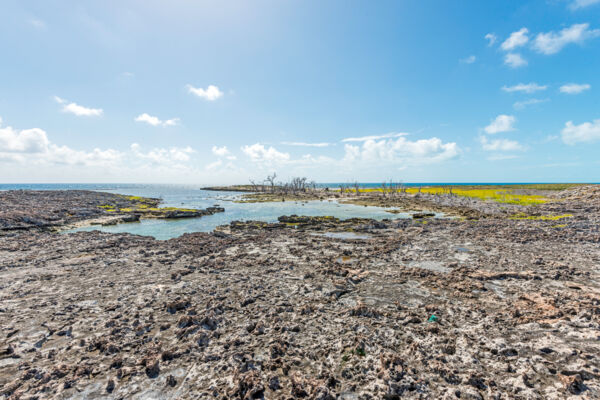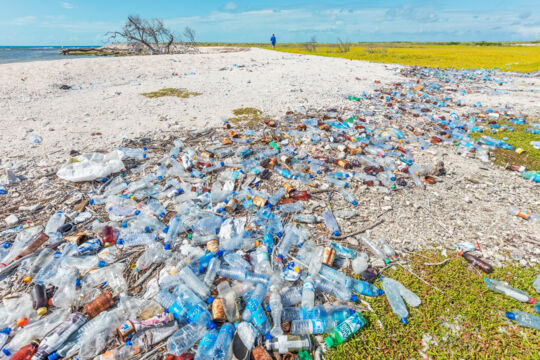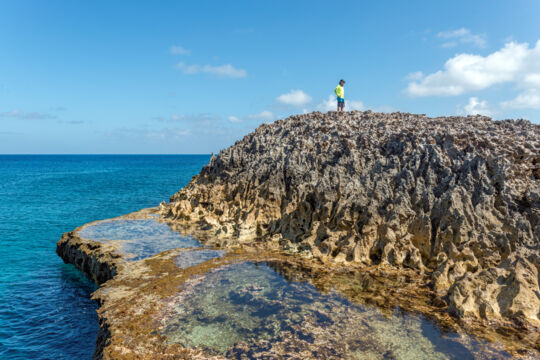Bush Cay Turks and Caicos
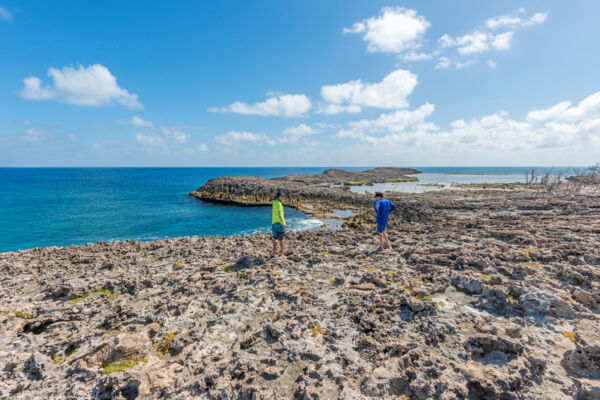
Bush Cay is a unique and remote island in the Turks and Caicos, and part of the Caicos Islands archipelago. The cay is found on the southeastern edge of the Caicos Banks, about 21 miles (34 km) south of South Caicos, and about 6 miles (10 km) southeast of Ambergris Cay.
Bush Cay isn’t large, with a collective area of approximately 19 acres (8 hectares). Much of the cay is exposed marine limestone, of which the windward coasts is razor sharp spikes. Although small, the cay offers some interesting, varied, and beautiful terrain. Off the leeward west side of the cay is a rocky beach shoal, and on top of the shoal is a very dense field of mule pear cactus, which is a remarkable sight.
Bush Cay once had a unique grove of significant mangrove trees on its sheltered lagoon, yet unfortunately, this grove was destroyed by Hurricane Irma and other storms.
The island often exhibits evidence of the negative sides of society, and at times has large quantities of refuse left by human smugglers, illegal migrants, and poachers.
The Seal Cays Wildlife Sanctuary
Bush Cay is a protected area in the Turks and Caicos, and part of the Seal Cays Wildlife Sanctuary, which also includes White Cay, Indian Cay, and many small rocks in the southeast region of the Caicos Banks.
Attractions and Sights
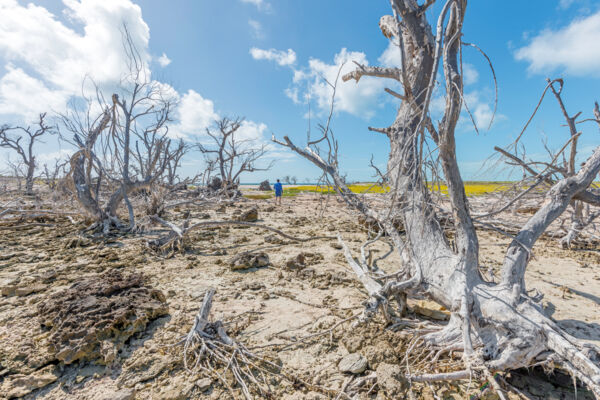
In addition to the scenery, Bush Cay also is an excellent location for humpback whale watching during the winter months, the surrounding waters are great for fishing, and beautiful snorkeling reefs abound.
Bush Cay typically offers great birdwatching. Like many of the isolated coastal areas in the Turks and Caicos that attract coastal birds, sighting vary greatly due to migrations, seasons, or the presence of a peregrine falcon.
Tours and Charters
Bush Cay is quite isolated, and tour companies do not regularly visit the cay. All excursions to the island will have to be custom trips, typically at much greater expense than those to other destinations in the country.
Due to the long transit distances, faster charter vessels are the optimal choice. The remote location also suggests that small vessels are not appropriate.
Navigation in the area can be difficult, especially close to the cay, as hazardous reefs are common. Most are of sufficient depth so as to not be dangerous to mid and smaller vessels, yet many do rise quite close to the surface, so essentially all have to be traversed with caution as it’s difficult to distinguish the height of reefs when traveling.

